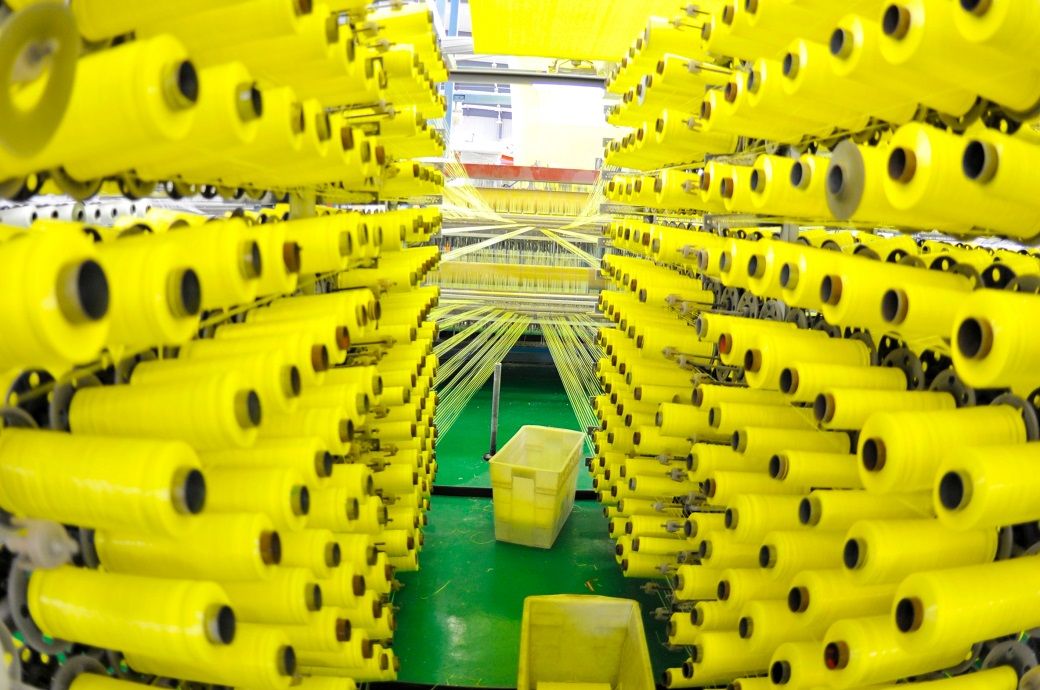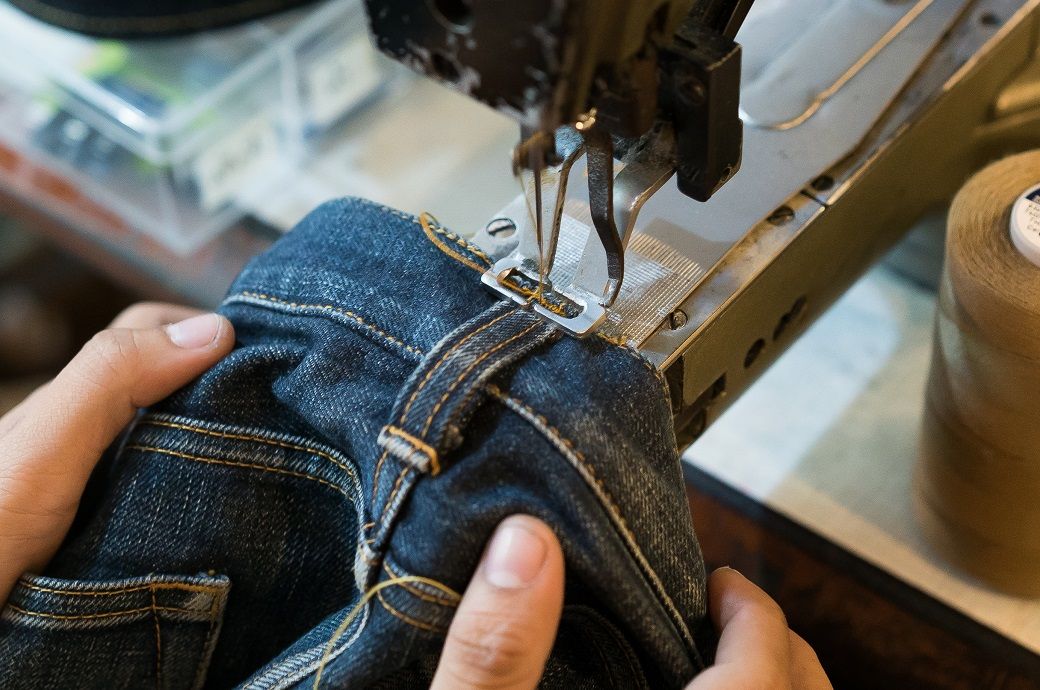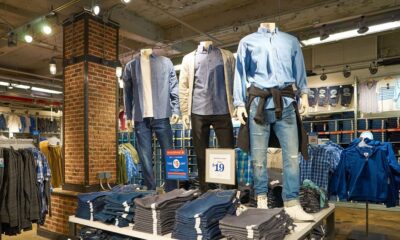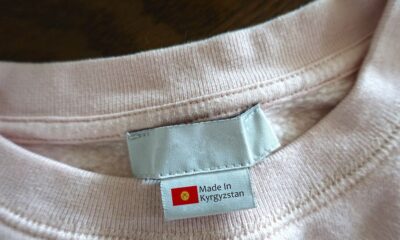Fashion
Camera expresses belief in Italian future; Lorenzo Bertelli concerned Armani might pass into foreign hands

Published
September 24, 2025
Prada senior executive and family heir Lorenzo Bertelli on Wednesday expressed concern that the house of Giorgio Armani might pass into foreign hands, a common apprehension among senior Italian luxury executives.
“Naturally, I fully respect the right of Signor Armani to do as his wishes with his own company. But, of course, we would be disappointed if Armani passed into foreign control,” said Bertelli, speaking at a breakfast with editors to meet the board of the Camera della Moda, Italian fashion’s governing body.
Held inside private members club Cipriani, the morning get together was hosted by a Camera board that included many of Italy’s top luxury decision makers: Renzo Rosso of Diesel, Luigi Maramotti of Max Mara, Remo Ruffini of Moncler, and Gildo Zegna, Alfonso Dolce and Camera CEO Carlo Capasa. Between them, the board members control a score of luxury marques, with annual sales of over €12 billion, so one tends to pay attention to their opinion.
Under the terms of the will of Armani, who passed away on September 4, his heirs are obliged to sell 15% of his company to a major luxury group within 18 months or float the company on the stock market in a public tender offer. Furthermore, Armani listed three key candidates, two of whom are French – luxury giant LVMH and beauty behemoth L’Oreal, along with eyewear leader EssilorLuxottica, a Franco-Italian group.

This April, Prada acquired 100% of Versace in a $1.25 billion deal from New York fashion group Capri Holdings, repatriating an iconic Milan house from American to Italian control. The price was a significant discount of the $2.1 billion the Versace family sold out for in 2018, reflecting changing valuations in fashion brands in a slower market. On Friday, Dario Vitale will stage his debut show for Versace in Milan, the first since the retirement of Donatella Versace.
The breakfast took place on the second day of the six-day Milan Fashion Week, which opened Tuesday with the first collection by Demna at Gucci, Italy’s single largest luxury brand. And will climax on Friday with the 50th-anniversary show of Giorgio Armani and the opening of a retrospective of the designer’s creations inside the Pinacoteca di Brera, Milan’s greatest art museum.
The season comes at a moment when Italian luxury has been buffeted by fines levied due to unfair working conditions by Italian authorities against several major companies including LVMH’s Dior and Armani.

CEO Capasa conceded that there has been “major issues in supply chain,” but revealed that the Camera has been working with the government on developing a law to regulate the issue. Local media reports have sometimes characterized the issue as, in part, bold-faced name brands using Chinese sweatshops in Italy.
“We are presenting a law to address this issue in November. But you must remember irregular workers make up only about 30,000 people out of 600,000 working in Italy,” in fashion and luxury manufacturing, Capasa argued.
Adding that picking out a couple of hundred bags and suits that had been made in under the radar ateliers, out of several million items made per year in the peninsula, “is not so fair.”
Entering the discussion, Maramotti cautioned that the Camera has been working for 18 months on this issue.
“Some things are not so simple to regulate. This sort of activity happens at our third level of supply,” he insisted, before adding: “I love Chinese people, they have brought so much to Italy.”
Maramotti opined that too much attention is being placed on creating a giant group, when what was needed was support for small companies and artisans.
“Unfortunately, in France, the fashion industry is no longer there in terms of production,” he noted in warning.

Over 600,000 people work in the greater fashion business in Italy, the Camera estimates, though international conflicts and the collapse of Chinese consumer demand for luxury products has placed many labels under stress.
“It’s a time of deep divisions in the world with lots of problems. Also, we forget that fashion can have a positive message. But, in my view, we are going to have a strong fashion week,” added Capasa.
In a busy season, Milan will host 171 events, including 54 in-person shows, the same number as in February.
“We are very proud to be Italian and to defend our system. We are ethical and serious and proud of the fact that many of our houses are still controlled by the founding family after 100 years,” added Gildo Zegna, whose grandfather Ermenegildo founded the marque in 1910.
“I believe that the Camera, led by Carlo Capasa, has done a very good job. We are dependent on our supply system and that must be defended, especially the small companies and not just the big ones,” added Zegna, before cautioning that U.S. tariffs posed a major threat by inflating prices in the United States.

Zegna, whose firm at one stage manufactured most of Armani’s men’s apparel, also pointedly expressed his “gratitude to Signor Armani, our god and leader.”
In his remarks, Renzo Rosso focused on the need of all companies need to grow through a sustainable model.
“We Italians can create strong groups, look at Remo and I,” he smiled. Noting that his group OTB had four runway fashion brands, he signaled that the key to success was hard work and our creativity.
“Right now, we don’t have traffic inside the stores. So, we must work even harder. And we need to be positive. Even if sometimes it’s often easier to attract more readers with bad news. Maybe you could all write about something positive?” said Renzo, in a gentle admonishment of certain critics at the breakfast.
Copyright © 2025 FashionNetwork.com All rights reserved.
Fashion
South Indian cotton yarn under pressure on weak demand

In the Mumbai market, cotton yarn prices remained unchanged as the loom sector slowed production. Although spinning mills are looking to raise their selling rates, they have not found sufficient demand. A Mumbai-based trader told Fibre*Fashion, “Power and auto looms are facing limited fabric buying from the garment industry. Export prospects are still unclear. Domestic demand is also insufficient to support any price rise. Mills are comfortable with falling cotton prices, while buyers remain silent on yarn purchases.”
In Mumbai, ** carded yarn of warp and weft varieties were traded at ****;*,***–*,*** (~$**.**–**.**) and ****;*,***–*,*** per * kg (~$**.**–**.**) (excluding GST), respectively. Other prices include ** combed warp at ****;***–*** (~$*.**–*.**) per kg, ** carded weft at ****;*,***–*,*** (~$**.**–**.** per *.* kg, **/** carded warp at ****;***–*** (~$*.**–*.**) per kg, **/** carded warp at ****;***–*** (~$*.**–*.**) per kg and **/** combed warp at ****;***–*** (~$*.**–*.**) per kg, according to trade sources.
Fashion
Bangladesh–US tariff deal may have limited impact on India

Bangladesh is already among the top suppliers of apparel to the US, particularly in basic knit and woven categories such as T-shirts, trousers and sweaters. A tariff advantage, even if modest, could sharpen its price competitiveness in high-volume, price-sensitive segments dominated by mass retailers.
The proposed Bangladesh–US trade understanding offering near zero-tariff access for garments has sparked debate in India’s textile sector.
While Bangladesh may gain a price edge in basic apparel, industry leaders believe the effective advantage could be limited to 2–3 per cent due to raw material dependence, capacity constraints and logistics costs.
However, Indian industry leaders argue that the net gain for Bangladesh may be restricted to around 2–3 per cent in effective competitiveness. They point to structural constraints, including Bangladesh’s heavy reliance on imported raw materials. A significant share of its fabric and yarn requirements is sourced from China and India, limiting flexibility in rules-of-origin compliance if strict value-addition conditions are attached to the deal.
Capacity limitations in spinning, weaving and man-made fibre processing are also seen as bottlenecks. While Bangladesh has built scale in garmenting, its upstream integration remains narrower than India’s diversified fibre-to-fashion base. Indian exporters emphasise that integrated supply chains offer advantages in speed, customisation and smaller batch production.
Logistics and lead times may further temper expectations. Distance from major US ports, coupled with infrastructure pressures and global shipping volatility, could offset part of the tariff benefit. In contrast, Indian suppliers have been investing in port connectivity, digital compliance systems and flexible production models to strengthen reliability.
Industry representatives also highlight that US buyers are increasingly factoring in sustainability, traceability and geopolitical risk. India’s growing adoption of renewable energy in textile clusters, compliance with global standards and broader product depth may help it retain strategic sourcing partnerships.
While some diversion of orders in basic categories cannot be ruled out, exporters believe the overall impact will be incremental rather than disruptive. The consensus view is that tariff preference alone is unlikely to override considerations of scale, compliance, diversification and long-term supply-chain resilience.
Fibre2Fashion News Desk (KUL)
Fashion
US lawmakers introduce Last Sale Valuation Act to end customs loophole

“This bill protects Louisiana workers and American businesses, ensuring loopholes don’t hold them back,” Dr Cassidy said in a press release.
US Senators Bill Cassidy and Sheldon Whitehouse have introduced the Last Sale Valuation Act to close the ‘first sale’ customs loophole that lets importers underpay duties.
The bipartisan bill would base tariffs on final sale values, strengthen US Customs enforcement and curb duty evasion.
Supporters say it will protect American manufacturers, workers and federal revenue.
If passed, the bipartisan measure would grant clearer enforcement authority to US Customs and Border Protection (CBP), streamline valuation reviews and reduce disputes over documentation, while curbing mis-invoicing and related-party pricing schemes linked to tariff evasion and illicit financial activity.
The legislation has drawn support from the American Compass, the Coalition for a Prosperous America and the Southern Shrimp Alliance.
“Cassidy’s ‘Last Sale Valuation Act’ strengthens customs valuation by assessing duties on the final transaction value of goods entering the US,” said Mark A DiPlacido, senior political economist at the American Compass, adding that closing the judicially created ‘first sale’ loophole would reduce duty evasion, simplify enforcement and increase customs revenue.
Jon Toomey, president of the Coalition for a Prosperous America, said the bill is “an important first step in restoring customs integrity,” ensuring duties are paid on the true commercial value of imported goods and helping level the playing field for American manufacturers and workers.
Fibre2Fashion News Desk (CG)
-

 Entertainment1 week ago
Entertainment1 week agoHow a factory error in China created a viral “crying horse” Lunar New Year trend
-

 Tech1 week ago
Tech1 week agoNew York Is the Latest State to Consider a Data Center Pause
-

 Business4 days ago
Business4 days agoAye Finance IPO Day 2: GMP Remains Zero; Apply Or Not? Check Price, GMP, Financials, Recommendations
-

 Tech1 week ago
Tech1 week agoNordProtect Makes ID Theft Protection a Little Easier—if You Trust That It Works
-

 Tech1 week ago
Tech1 week agoPrivate LTE/5G networks reached 6,500 deployments in 2025 | Computer Weekly
-

 Fashion4 days ago
Fashion4 days agoComment: Tariffs, capacity and timing reshape sourcing decisions
-

 Business1 week ago
Business1 week agoStock market today: Here are the top gainers and losers on NSE, BSE on February 6 – check list – The Times of India
-

 Business1 week ago
Business1 week agoMandelson’s lobbying firm cuts all ties with disgraced peer amid Epstein fallout


















